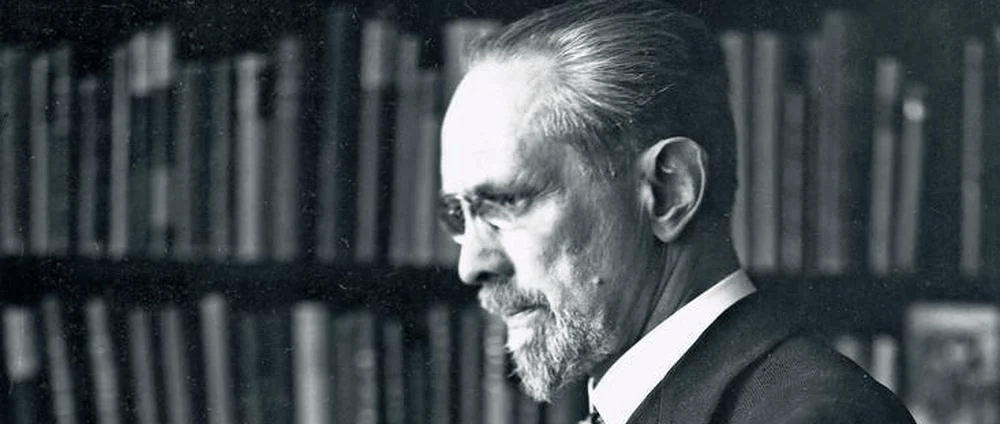On Belonging

I know that I am a derived reality, that I am not self-caused. I am not the “ground” of my own being. But what is, then?
We aren’t asking here about “proximate” causes, material events, such as my parents, their parents, and so on. The question of “cause” proceeds quickly to ultimate cause: from what ultimately have I emerged? And why?
“We are stardust,” sings Joni Mitchell. Well, yes. But where did stardust come from? It is somewhat customary and somewhat pleasing—at least for quite a few people I know—to stop at stardust: at the primal energy-matter that swirls and blazes and expands in the impossibly immense universe (the diameter of the observable universe is about 93 billion light-years), that coalesces in chemical compounds, that in a breathtaking sequence of dynamic emergences has integrated itself “upward,” on planet earth, into sea and atmosphere, primitive life, plants, animals, and ourselves. But questioning—left to its own devices—refuses to stop at energy-matter. What is the cause of stardust? It won’t quite do to say: nothing. And it won’t quite do to say, that’s a foolish question. The question reasserts itself; it nibbles at the soul, as Emily Dickinson would say. It does lead the mind to a border where it confronts the failure of its own powers; but it is not an unreasonable question.
In fact, there is no reason to consider “reason” itself to be trustworthy unless its built-in trajectory—its spontaneous openness toward its own natural “terminus,” which is the demand for some knowledge of a completeness of causes—is accepted. Reason, in the end, is openness to the ground of its own being.
Therefore I ask: to what do I belong, in an ultimate sense? To the cosmos, yes; but the cosmos is the fullness of all meanings; and what we are calling “the ground of being” is, in the way we are considering it, the heuristically anticipated, metaphorically indicated origin of all meanings. And more fundamentally to all else that we belong to, we belong to that—whatever it is.
This may seem like a sudden leap into the furthest reaches of abstraction, especially given the fact that the much more obvious, much more immediate truth is that I belong to myself. After all, the development of human culture has made inescapable the serious, inspiring, frightening truth that each of us is in our own care; is responsible for what we make of ourselves; has an obligation to take charge of the life story we have been granted. The fact that I belong to myself (what a trauma for adolescence!), and that I can’t in good conscience offload the job of managing my existence onto anyone else—the crowd, the “they,” parents, friends, history—is the conscious mainspring of authentic, adult human living. But this belonging-to-and-responsibility-for-self happens in a situation. It is bodily located, and this body (with its imperatives and impulses) exists within a family, a community, language, myriad traditions, all of which affect and inform my self-management and which from beginning to end entail dialogues, sometimes conscious and sometimes not, wherein I learn and test, attempt and backtrack, create or blunder into new situations which my enlarged self-understanding must adapt to … and on it goes. And yet for all this situatedness and intersubjective becoming, I do belong to myself, in a way that I can’t escape. (Sartre: I am condemned to be free.)
At the same time, my being given to myself for self-management was not my own doing! I can shape myself because I have been granted that freedom. And if I have been (as Heidegger says) “thrown” into being—what or who did the throwing? That is the question of the ground. And to this mysterious ground I fundamentally belong: to it, I owe everything—that is, myself. So when I ask myself, How am I to shape myself? my sense of responsibility to that from which I have ultimately derived permeates the question. I owe it to myself to be “true to,” to be attuned to, to live in accordance with, the ground of my very consciousness.
In other words: to properly claim myself, I need to do my best to adhere to, unify myself with, deepen my conscious participation in, the origin and essence of all things. The ancient wisdom traditions, the major philosophical and religious traditions, agree on this point. How should one live? In accordance with the Tao. Recognizing that the deep self, Atman, is identical with the transcendent reality, Brahman. One should speak and act in harmony with the Logos (Heraclitus, Plato). The Hebrew prophet Micah writes: we should seek justice, practice kindness, and walk humbly with our God.
But what if all these words and symbols and traditions just seem so old, so disconnected with the present, so that they are dead on arrival—hollow-sounding, words without matter, sound without sense? Then a person will have to try to grow into authentic value and virtue through continual reference to moral clues and dictates tossed up by present-day culture: many of them at odds with each other, and most of them, in our time, reflecting the supposition that “the immanent universe is all there is.” Closure to transcendent being is a hallmark of modernity.
But sensitive and discerning consciousness—a psyche not in thrall to ideological absolutes, a thralldom in which ultimate concern is channeled toward paying homage to, or creating, idols of science, technology, marketplace, art, power, pleasure, or self-esteem—suspects that the Measure has yet to be found. If skepticism about ideologies keeps one searching; and if disgust at the sight of all who practice a close-minded obeisance to institutionalized divinities doesn’t cause one to forever abandon seeking the deep ground; then attempts at remembrance of the Mystery to which one finally belongs will continue.
If they do, it may become apparent that acknowledging that one’s being belongs, most profoundly, to a transcendent “all-humbling darkness” (Dylan Thomas) is a kind of—courtesy! “Courtesy” is a gentle, kind helpfulness, offered with respect. Courtesy toward our own utmost origins wants to help it show itself in our doings. The ground of meaning does not need our efforts, of course, being self-sufficient, overflowing, and creative. But courtesy glorifies it, while bringing our own lives into the stability of witness. We don’t get to hold on to the truth about all being; but we get to accept that we belong to ourselves in honesty only by granting that what we belong to is that freedom beyond our freedom that gave us our freedom. Which liberates, incidentally, imagination. As E. E. Cummings writes, in his novel Eimi: courtesy is the mother of imagination.
It is odd that we become ourselves, and come to discover that we truly belong to ourselves, only by recognizing and feeling that we don’t belong to ourselves: that we become individuals who choose to be what we make of ourselves only by realizing our identity, and finding deeper unity, with the mysterious ground of our being. It is the paradoxical rule that Greater Individuation involves Deeper Communion; and that Deeper Communion leads to Greater Individuation. One finds one can only become a more and more distinct person by continually becoming more and more one with the Whole within which one exists: that is, by “losing oneself” in fulfillment of the desire to deepen participation. “Depth is discovered outward” (Heimito von Doderer: Die Tiefe ist Aussen).
What is the goal of this development, this being a tuning-fork that vibrates with recurrent remembrance of the transcendent source of our personal identity? It seems it would be to learn how better to act with loving courtesy toward the Whole that has emerged in dynamic magnificence from the ground of being.
We glimpse exemplary models of this learning, this growth, in certain individuals we encounter in history, in the news, in daily life: those who have “developed well.” And any especially virtuous and grounded person is a transparency for that Measure from which we have all derived, a pwerson who invites us to realize our own similar transparency.
How much we “measure up” will have to do with how well we manage to belong to ourselves by belonging to our source.




